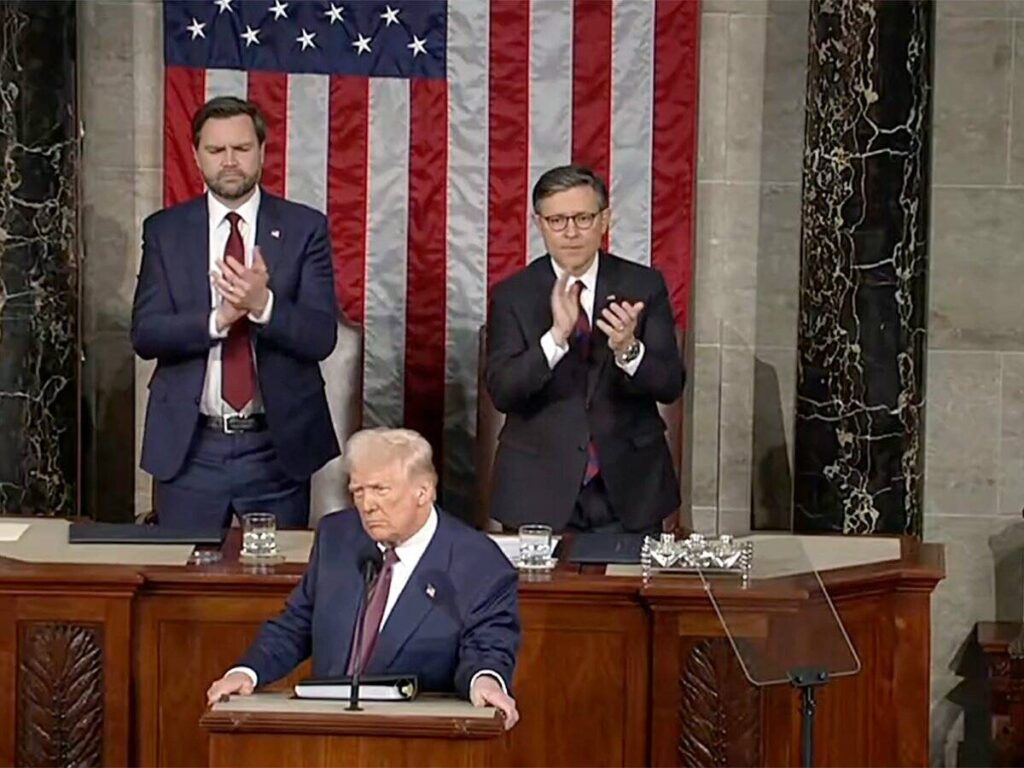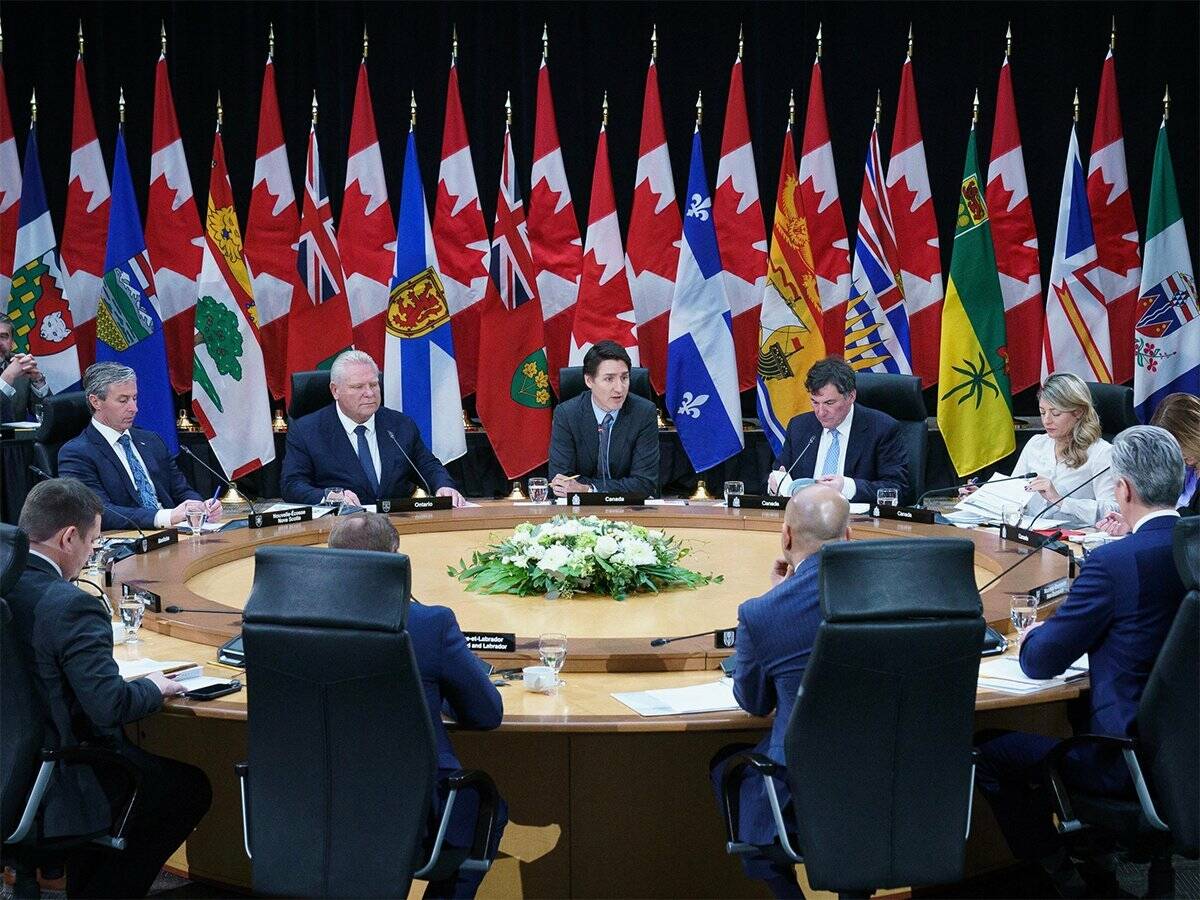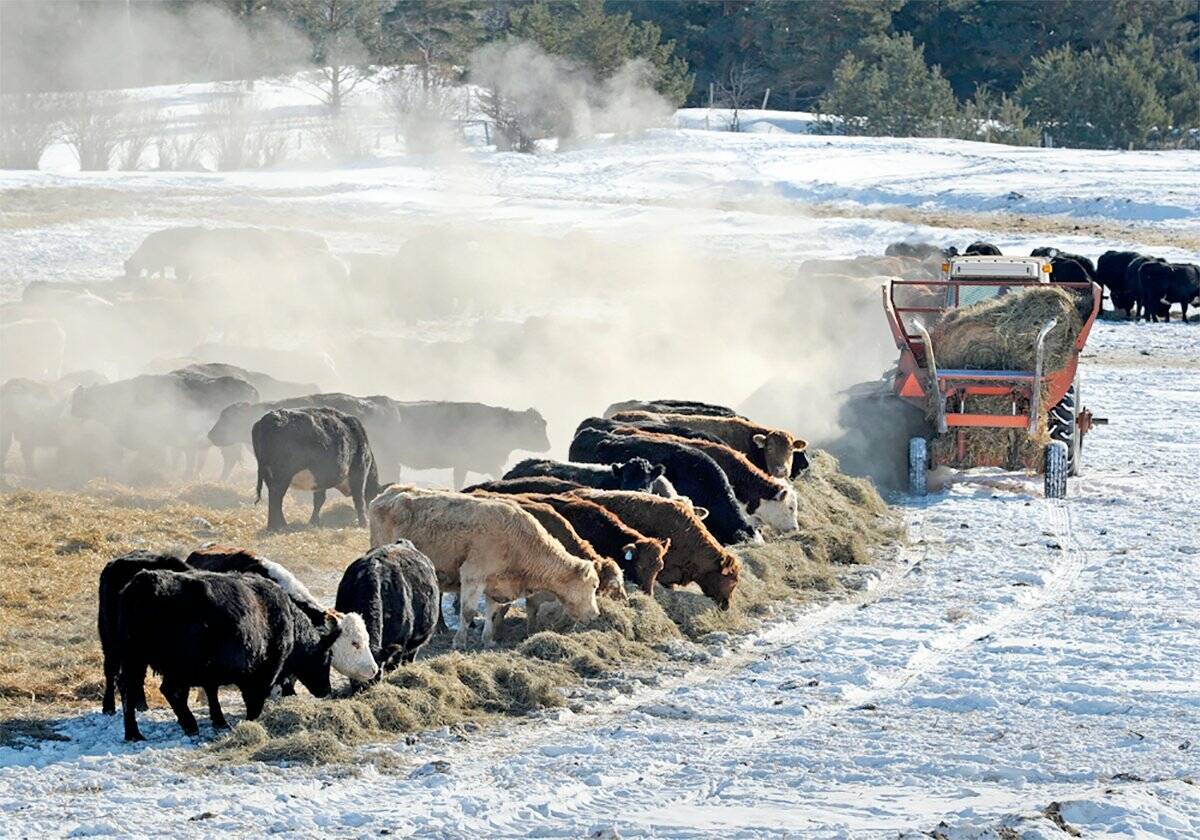Tariffs Day 3 – Donald sees the light — for now

Glacier FarmMedia—The continuing soap opera-like saga of North American trade continued to unfold today with more ups, downs and unexpected twists than a telenovela.
First we were digging in for an extended trade war. Then Mexico was getting an exemption even as Canadian officials were being publicly baited by senior members of the U.S. administration. Then finally Canada was granted the same exemption status — but it appears this is just a pause, not a reset, to the Trump trade game.
The politics
Read Also


Tariffs, trade dominate discussion at Canadian Crops Convention
Former PM Stephen Harper and economists speak about U.S. tariffs on Canadian goods during the Canadian Crops Conference 2025 in Edmonton.
In a thirteenth-hour reprieve, U.S. president Donald Trump has pulled the pin on U.S tariffs on Canadian and Mexican goods less than three days after instituting them.
Tariffs on Mexico were the first to go. In a post on the Trump-owned Truth Social, Trump wrote that “after speaking with President Claudia Sheinbaum of Mexico, I have agreed that Mexico will not be required to pay Tariffs on anything that falls under the USMCA agreement” and noted this was in effect until April 2.
He said the move was made out of “respect for President Sheinbaum,” and described the relationship as a “very good one” and praised Mexico for its hard work and co-operation on border issues.
Later in the day word of a similar amendment to tariffs on Canadian goods began to seep out, with a bit more detail.
The exemption, which will expire on April 2, covers both of the two largest U.S. trading partners. Trump had earlier only mentioned an exemption for Mexico, but the amendment he signed to his order for 25 per cent levies on imports from both – which went into effect on Tuesday – covers Canada as well.
For Canada, the amended order also excludes duties on potash, a critical fertilizer for U.S. farmers, but does not fully cover energy products, on which Trump has imposed a separate 10 per cent levy. A White House official said that is because not all energy products imported from Canada are covered under the U.S.-Mexico-Canada Agreement on trade that Trump negotiated in his first term as president.
It’s unclear if this affects earlier remarks from Prime Minister Justin Trudeau that Canada will continue to be in a trade war with the United States for the foreseeable future, made to the the Reuters news service, a day after what he called a “colourful” call with President Donald Trump.


Domestically the federal and provincial governments are working to dismantle interprovincial trade barriers, making domestic markets larger and more efficient, having met Wednesday.
Economic effects
At the Alberta Beef Industry Conference in Calgary trade — and the market volatility trade uncertainty creates — was a main topic of conversation.


There were murmurs during networking sessions among producers, at annual general meetings and as a topic of discussion with multiple keynote speakers during the three-day conference.
”One of the first things I’m telling folks across the industry, whether it’s cattle producers in the U.S., Canada or Mexico, the only thing we know for certain right now is this is going to add volatility and uncertainty to an already volatile and uncertain market environment,” said Lance Zimmerman, a senior beef analyst for the North American market for RaboResearch Food and Agribusiness, during Day Two of the conference on Wednesday.
“As we look at that volatility, a market that moved 10 per cent 20 years ago may of cost us about $60 to $80 a head. A value swing today at 10 per cent move in the market is worth $300 a head U.S. — add time-and-a-half to get to a Canadian value in terms of currency adjustment.”
Farm machinery is also in a tenuous position with many Canadian manufacturers selling a lot of equipment into the U.S.
In 2023, Saskatchewan exported about $834 million worth of agricultural equipment to the United States.
A portion of those exports were straw choppers and weed seed control units, manufactured by Redekop at its plant near Saskatoon.


Redekop has farmer customers in Montana, North Dakota, Kansas and other states who want a better chopper on their combine. The Redekop straw chopper cuts straw into fine pieces and evenly distributes the residue across the field, which is desirable for growers.
“We tend to focus on small grains and the higher volume of residue, where you have lots of straw,” Trevor Thiessen, chief executive officer of Redekop Manufacturing, said while sitting at a booth at the Commodity Classic, a trade show held in Denver March 2-4.
A spokesperson for another manufacturer of ag equipment on the Prairies, who also attended the Commodity Classic, said his company acted before March 4 to avoid the tariffs. The Manitoba business moved machinery across the border this winter and should have sufficient stock in the U.S. for many months of sales.
Redekop took similar action in February.
“We shipped pretty much 98 per cent of our (U.S.) distributor’s order already,” Thiessen said.
Manitoba-based Peak of the Market, a farmer-owned marketing board that sells Manitoba-grown vegetables in Canada, the United States, and occasionally overseas, is feeling the effects of trade uncertainty and the push to buy Canadian.
The company, which is a privately owned firm that sprung from a former provincially legislated monopoly, remains committed to supporting both domestic and international partners during the tariff war.
They’re also seeing some modest increase in Canadian demand as consumers on this side of the border move to buy Canadian products.
This does not bode well for the Canadian or American farmer,” said Pamela Kolochuk, CEO of Peak of the Market.
The National Farmers Union said the United States is threatening Canadian sovereignty and trade.
In a recent press release, the farm group says “a serious response” is needed to the tariffs, but any retaliatory measures must consider and protect Canadian farmers, farm workers and consumers.
While immediate measures are critical to addressing the situation, the NFU says a more long-term strategy is necessary, including a more substantial policy to external disruptions that will increase resilience, improve preparedness and reduce dependance on the United States, which is no longer a reliable trading partner.
“President Trump’s disruptive strategy and lack of respect for rules means we can no longer consider trade agreements reliable,” the NFU said.
Path forward
Western Producer markets columnist D’Arce McMillan lamented the lack of vision to wean Canada from its dependence on trade with the U.S.
“Canadians are again bemoaning our overwhelming trade dependence on the United States and asking ourselves why we don’t consume more of our own products and why we don’t sell more to other countries.
“U.S. president Donald Trump’s mad decision to launch a trade war against Canada has again forced Canadians into self-examination.
“We go through this regularly and, disappointingly, we have not been bold enough to tackle internal weaknesses that, if we fixed them, would make us more resilient.
“On the other hand, we can’t get around the fact that we live next door to a giant,” he wrote.


Former Prime Minister Stephen Harper was among the speakers at the Canadian Crops Convention in Edmonton, and he did not mince words when it came to the U.S. enforcing its tariffs on Canada.
“What happened on Tuesday with the imposition of these across-the-board tariffs, as a Canadian and from the standpoint of our nation, was the darkest day I have experienced since I left Ottawa. This is a very worrisome thing,” he said.
But he added that it is not all gloom and doom, as he does not expect the heavy-handed sweeping tariffs to last too long.
“We need to remember that no organization in the United States with any significance is asking for this. It really is the agenda of the President himself. And secondly, let’s not forget that while we are going to be hurt by this, it is Americans who are going to be hurt right away… So I think there will be pressure in the United States that will grow for this to be addressed,” Harper said.
Source: Farmtario.com

